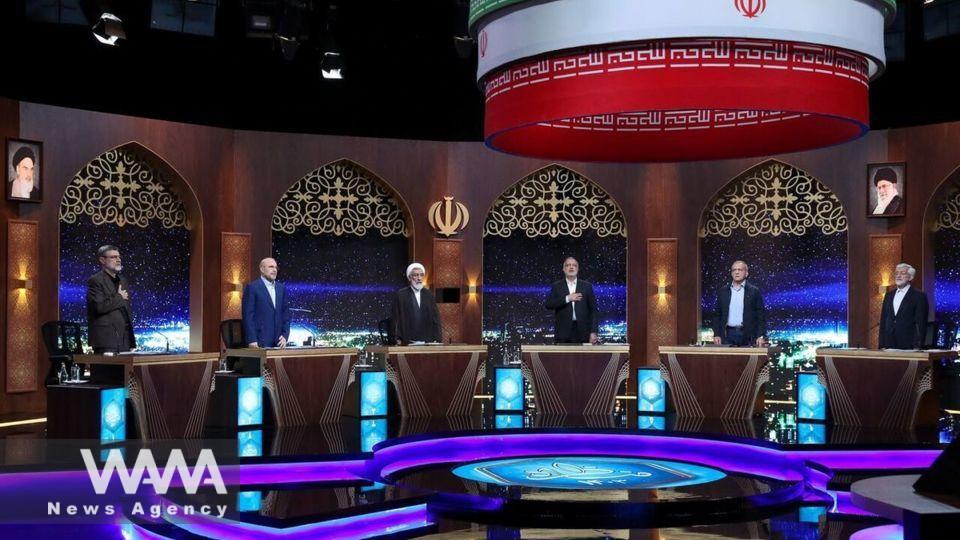Shifting Dynamics: A Wake-Up Call for Conservatives
WANA (June 22) – The third debate between the candidates for Iran’s presidential election was held amid heightened election fervor, attracting a larger audience. This debate focused on culture under the theme “Social Cohesion through Cultural Governance,” the candidates answered questions regarding women’s status in the country, the importance of their presence in society, governance in cyberspace, censorship issues, and cultural productions.
While this debate may not significantly boost voter turnout, it might shift a small percentage of votes. A noteworthy element at the debate’s start was the selection of Quranic verses for recitation, chosen for their themes of consultation, reliance on God by the Islamic leader, the trust of believers, and the need for interaction with people, emphasizing attention to people’s needs and desires.
In this debate, only Mr. Ghalibaf, Mr. Jalili, and, to some extent, Mr. Ghazizadeh discussed their programs. The other three candidates either repeated old points, engaged in arguments and power displays, or expressed regret over the current situation.
When the topic of hijab arose, despite good responses from other candidates, Ghazizadeh’s pinpoint comment stood out, noting that the main issue is not the hijab but justice in opportunities. Zakani also highlighted the distinction between private and public spheres, stating that order and law govern the public sphere, and hijab is both a religious and legal matter, best resolved with respect.
Particular emphasis by Pezeshkian on the hijab issue suggested he was aligning with the 2022 protests. Pourmohammadi seemed more intent on presenting a bleak picture. However, is this behavior what is expected from an ideal candidate? For a country’s progress, the people need a president who seeks solutions addressing mistakes constructively rather than merely complaining.

WANA- presidential election candidates
In contrast, Jalili, Ghazizadeh, Zakani, and, to some extent, Ghalibaf aimed to highlight the essence of Iranian women, proposing several ways and programs to enhance their roles. On the topic of censorship, there was a consensus on its detrimental effects, with Zakani making a critical point that the “protection plan differs from censorship; we need protection in cyberspace.”
Pezeshkian’s comments on social media, mistakenly referring to Twitter as an educational platform, drew attention, suggesting a lack of deep understanding and study behind his remarks. This error and his limited vocabulary indicated that his statements lacked genuine conviction, seeming more like dictated lines.
An interesting observation from the candidates’ cultural discussions was that they all viewed the public as consumers and service recipients, emphasizing their planned services. In contrast, Jalili repeatedly stressed the active role of the people, considering them partners in the country’s destiny.
This debate showcased Jalili and Ghalibaf’s well-prepared performances. After three debates, it became evident that Pourmohammadi, despite being introduced as a principled candidate, seemed to shift his stance in criticisms and validations.
It wouldn’t be surprising if he withdrew in favour of Pezeshkian, who might emerge as a dark horse. Reformists appear to be following a familiar pattern: exploiting sensitive societal issues, presenting themselves as protestors, using supposedly neutral figures to endorse their views, and employing scare tactics about the conservative rule to sway votes in their favour.
By WANA writer: R.hejazi












